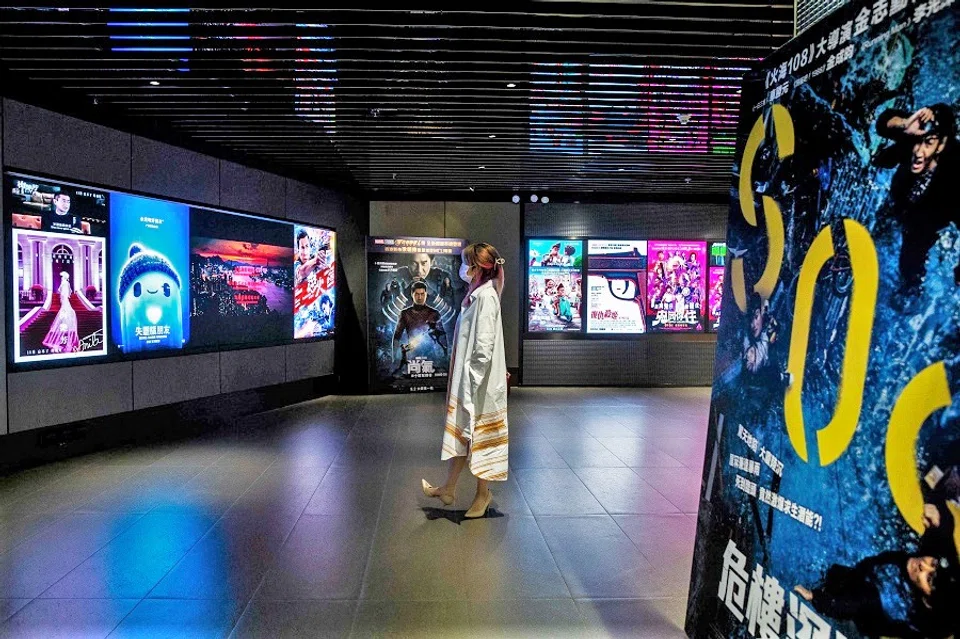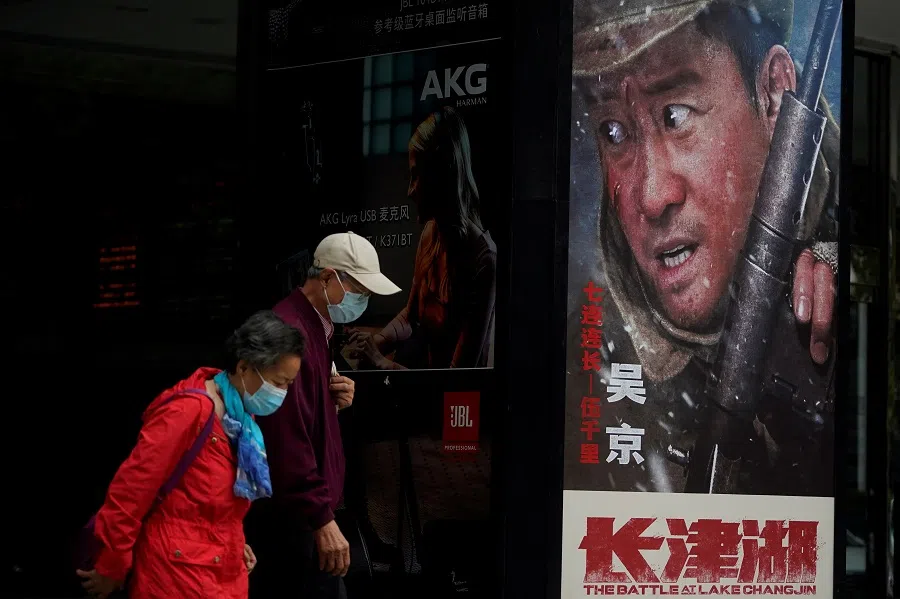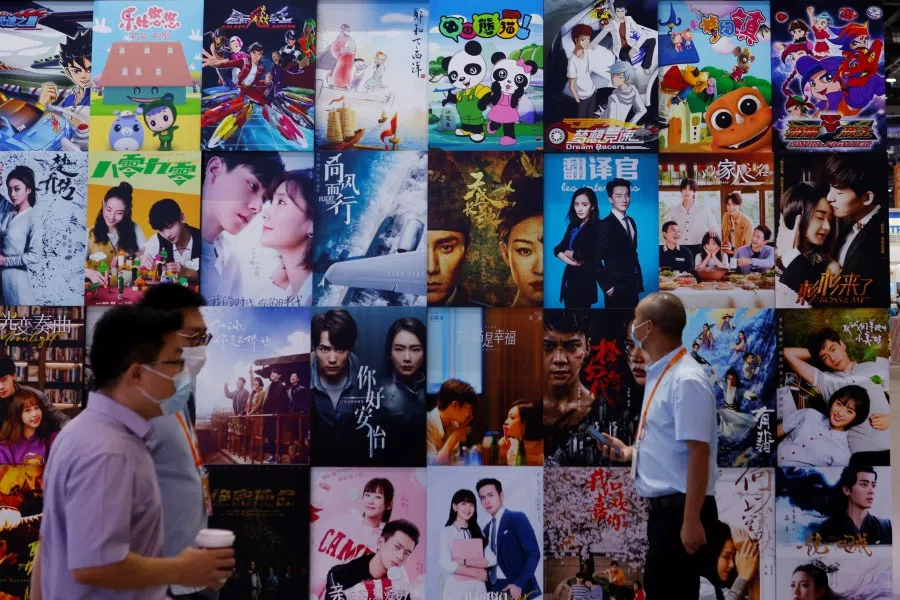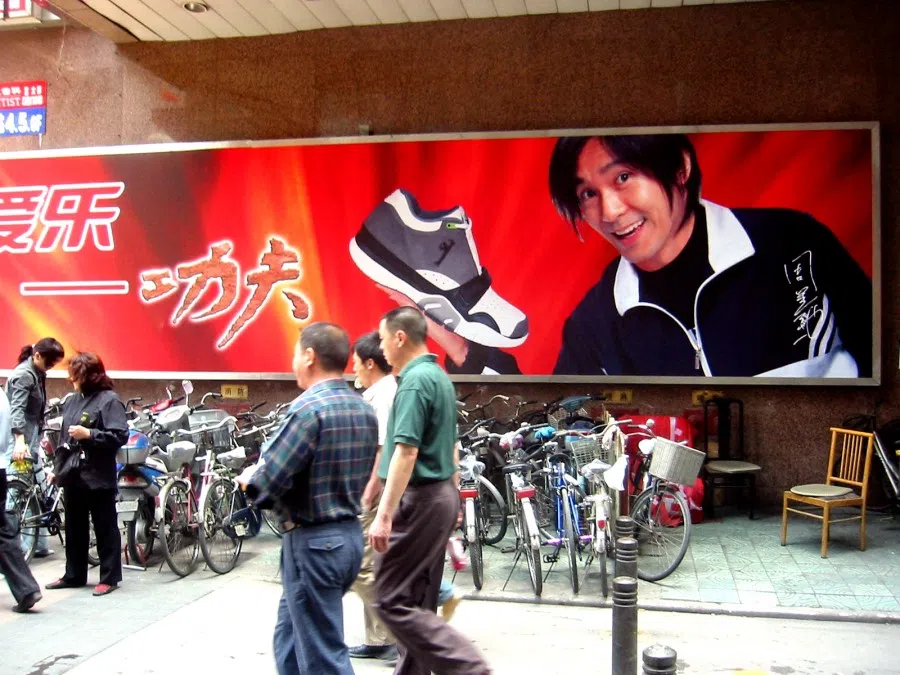From Hong Kong movies to Greater Bay Area movies: A new Hollywood of the East in making?
Over the past two years, the nine cities (Dongguan, Foshan, Guangzhou, Huizhou, Jiangmen, Shenzhen, Zhaoqing, Zhongshan and Zhuhai) and two special administrative regions (Hong Kong and Macau) of the Greater Bay Area (GBA) have ramped up efforts and combined resources to build a credible GBA Chinese film industry. The authorities aim to leverage the experience and expertise of the Hong Kong film and television industry in its heyday in creating a new paradigm for future Chinese movies. Indeed, many Hong Kong directors such as Tsui Hark have joined the ranks of those who are making this a reality. Zaobao journalist Zeng Shi notes that the GBA has policy support and capital, but can this nascent film industry make good productions and develop a strong identity of its own?

Over the past two years, the term "Greater Bay Area movies" has increasingly caught people's attention.
Shenzhen organised a Mid-Autumn Festival concert in the Greater Bay Area on 21 September, where over 100 renowned filmmakers and musicians from the mainland, Hong Kong, Macau and Taiwan gathered together to present Greater Bay Area movies to the public.
Culture is seen as one of the drivers in developing the Greater Bay Area. The 2019 Outline Development Plan for the Guangdong-Hong Kong-Macau Greater Bay Area proposed developing a "cultured Bay Area" to "promote the development of the media, publishing, radio, film and television industries in the Greater Bay Area" and "the fine traditions of Chinese culture".
Deeper cooperation between the mainland and Hong Kong
Hong Kong's film and television industry is specifically mentioned, with the plan encouraging leveraging the "strengths and expertise of Hong Kong talents", promoting "cooperation among the film and television industries in Guangdong, Hong Kong and Macau", strengthening "film investment and cooperation and exchanges among talents", and supporting Hong Kong to become "an exposition hub for television and film".
Between the late 1980s and early 1990s, Hong Kong maintained the record of producing over 200 films every year and was once the third largest movie producer in the world, after India and the US.

The integration of Hong Kong movies with the Greater Bay Area has led to the taking off of the "Greater Bay Area movies" concept. In the second half of the last century, Hong Kong cinema was in its heyday. It was even known as the Hollywood of the East and produced numerous renowned celebrities. Between the late 1980s and early 1990s, Hong Kong maintained the record of producing over 200 films every year and was once the third largest movie producer in the world, after India and the US. However, Hong Kong cinema slowly declined entering the 21st century. In 2013, it reached a record low point, producing only 42 movies in an entire year.
Now, Hong Kong filmmakers are looking for opportunities in mainland China. Liu Jiajia, general manager of Guangdong Zhuying Film & Television Production Co., Ltd., and vice-chairman of Guangdong Film Association, pointed out that there was a period of time when Hong Kong-made movies were not well received in the mainland market and had a limited audience. But recently, with the ongoing development of the film market, Hong Kong filmmakers are heading north to seek opportunities for cooperation.
The Mainland and Hong Kong Closer Economic Partnership Arrangement (CEPA) signed in 2003 laid a policy foundation for movie collaborations between mainland China and Hong Kong. The CEPA states that there is no restriction on import quotas for Hong Kong-produced movies, and movies jointly produced by Hong Kong and mainland China are considered as mainland China productions for the purposes of distribution in mainland China. Since then, after a period of friction and working things out, joint movie productions between Hong Kong and mainland China gradually matured.
Hong Kong directors working with companies and producers from mainland China to helm themed movies that fit the official ideology has been a popular creative model for China movies in recent years.

Hong Kong directors working with companies and producers from mainland China to helm themed movies that fit the official ideology has been a popular creative model for China movies in recent years; while tapping on elements of commercially successful Hong Kong productions, they also help the Chinese government to tell the China story from another angle. In 2014, the 3D movie The Taking of Tiger Mountain, led by Hong Kong director Tsui Hark and adapted from a well-known story of the same name dating back to the Cultural Revolution, won numerous awards in China with box-office takings of over 880 million RMB (about S$180 million), starting a wave of themed movies created by Hong Kong directors.
Among them are many blockbuster films that have done well with reviews and also takings, including Operation Mekong and Operation Red Sea by Dante Lam, The Captain by Andrew Lau, as well as this year's Leap, Chinese Doctors, and The Battle at Lake Changjin, which have all done very well.

Liu feels that filmmakers from mainland China and Hong Kong working together to tell the China story allows Hong Kong filmmakers to find a wider market in mainland China, to integrate what works in Hong Kong movies into the changing mainland China market.
Its [Hong Kong's] film culture was mostly about entertainment, and due to language differences, it was very unlikely to take in or spread Chinese ethnic diversity, forming a geographical cultural circle. - Chinese actor Zhang Shen
Veteran actor Zhang Shen, who has been in shows like Medal of the Republic as well as The Founding of a Republic, told Zaobao that the edge that Hong Kong filmmakers have is their rich production experience. Whether themed movies or entertainment movies, they can show their advantage and work closely with filmmakers or production companies from mainland China to complement them, and bring colour to mainland China productions.
Zhang also said that for many years, the film works of Guangdong, Hong Kong and Macau have mainly featured the local culture and traditions of the Lingnan region. Before its return to the mainland, Hong Kong was under the influence of colonial culture. Its film culture was mostly about entertainment, and due to language differences, it was very unlikely to take in or spread Chinese ethnic diversity, forming a geographical cultural circle.

He pointed out that culture is a constant process of integration, acceptance and enrichment. While holding on to local characteristics, it is also necessary to complement each other, and Hong Kong filmmakers going north is in line with the current times and developments.
In recent years, some Hong Kong film companies have chosen to enter the mainland China market, and have their eyes set on the Greater Bay Area. In April this year, Hong Kong's Emperor Entertainment Group (EEG) officially announced the establishment of its Greater Bay Area headquarters in Guangzhou, and signed a memorandum of understanding with the Guangzhou Culture, Radio, Film and Tourism Bureau, committing to push exchanges and cooperation in the Greater Bay Area in online film, music, cultural industry, and the nurturing of new talents.

At the event, EEG COO Mani Fok told the media that the move was because EEG was optimistic about the potential and opportunities the Greater Bay Area can bring to culture and entertainment.
She said EEG will explore the local culture of the Greater Bay Area to pass on and develop classic Cantonese music and film culture, and use Guangzhou as a base to build up music, film, and the cultural creative industry in the Greater Bay Area, as well as work closely with other partners to encourage the vibrant growth of the culture and entertainment industry.
Guangzhou striving to become "third pillar" of Chinese cinema
Indeed, with inputs from Hong Kong veterans, supporting policies in place as well as financial backing, Guangdong's film industry looks set to develop at a quicker pace.
In 2015, Guangdong released a notice on economic policies that would support film development in Guangdong province. The notice included 28 concrete policies aimed at promoting the development of the local film industry, such as having the province's finance department establish a film development fund, and supporting the construction of film industrial parks and film sets, among others.
Foshan, Guangzhou, Shenzhen and other cities are actively developing film industrial parks and have since established the Xiqiaoshan National Arts Studios and the Zhuying Cultural and Creative Industry Park.

Foshan, Guangzhou, Shenzhen and other cities are actively developing film industrial parks and have since established the Xiqiaoshan National Arts Studios and the Zhuying Cultural and Creative Industry Park. These film industrial parks cover the industrial chains of film production, post-production and film distribution. At the same time, film and television talent training institutions have also been established to act as development platforms for filmmakers and training centres for talents in the industry.
Guangzhou on its part is striving to become the "third pillar" of Chinese cinema. Pi Jian, head of the film division of the Literature and Art office of the Chinese Communist Party Guangzhou Municipal Committee Publicity Department said at a film and television event in Guangzhou in April this year that Guangzhou's film industry is currently developing at a stable pace while seizing major strategic opportunities presented by the development of the Greater Bay Area.
Pi also mentioned that at present, exchanges and collaborations in the film industry of the Greater Bay Area are deepening. A large number of film talents have strengthened their interactions and cooperation with one another, and a series of films have been released one after the other.
Optimistic about regional development opportunities, several film giants have set up their headquarters in the Greater Bay Area in recent years. For instance, Chinese production company and distributor Bona Film Group established its Greater Bay Area headquarters in Guangzhou in May last year. Bona Film Group CEO Yu Dong said at the time that the company would also build a post-production facility and a creative centre in Guangzhou to gather more filmmaking talents from the Greater Bay Area.

At the Guangzhou Cultural Industry Fair held in November 2020, Huayi Brothers also signed a cooperation agreement with the Guangzhou Airport Industry Investment Group Co., Ltd and the Guangzhou Industrial Investment Fund Management Co., Ltd to forge a Huayi Brothers cultural tourism centre in the Greater Bay Area (大湾区华谊兄弟文旅中心). The plan includes building a Huayi Brothers art centre that integrates visual and interactive elements, a film set, and a series of Guangzhou-made film and television productions.
Bringing resources together for a coordinated push
As one of the most economically vibrant areas in China, Guangdong is an important pillar of China's film market; for 19 years, it has been number one in box office takings. However, there are clear flaws in Guangdong's film industry, such as insufficient talent, lack of creativity and insufficient funds.
For years, Guangdong's box office takings have been number one in China, but the films produced there lack richness and quality. - Rao Shuguang, president of the China Film Critics Association and former secretary-general of the China Film Association
Yicai.com reported that Rao Shuguang, president of the China Film Critics Association and former secretary-general of the China Film Association, said in February at a press event on exchange and cooperation in the film industry in the Greater Bay Area that there were three "mismatches" in the film industry.
First, a mismatch between the former glory of the film industry in southern China and the current situation; previously, films from southern China had tremendous influence and were an important part of Chinese films, but growth in the past few years has not been ideal.
Second, the economic strength of the Greater Bay Area does not match its strength in terms of culture and film, when they should be more aligned.
Third, a mismatch between film box office indicators and the productions being created. For years, Guangdong's box office takings have been number one in China, but the films produced there lack richness and quality.
Using policies to create synergy and bring resources together to grow the film industry in the Greater Bay Area will be the common issue faced by filmmakers there.

Zhang Shen also pointed out that in the early stages of China's reform and opening up, Guangdong used its edge of being adjacent to Hong Kong and Macau to rapidly develop its film and culture industry, building a clear unique geographical identity, which was both an advantage and disadvantage. In recent years, China's film industry has grown quickly, with many good productions, directors, actors and producers coming up. If Guangdong does not cater to tastes in popular culture and integrate into the huge market while maintaining local flavour, it will be difficult for Guangdong's culture - built up over the years in its films - to stand out amid the tide of mainstream culture.
He felt that developing a cultural platform and encouraging win-win cooperation will be key to a thriving film industry in the Greater Bay Area. On the one hand, Hong Kong filmmakers can actively work with mainland China and complement each other; on the other hand, filmmakers in the Greater Bay Area have to think about how to align with the core film market and spread the culture of the Greater Bay Area into mainland China and attract capital investments, and grow the space and market momentum.
Related: Does China need its own Squid Game? | China's crackdown on pretty boys and temple temptresses: Why are Chinese women feeling targeted? | Universal Studios Beijing: With 5,000 years of culture, can China create its own theme park? | [Photo Story] Hong Kong was once the Hollywood of the East | Celebrities scrubbed from the Chinese internet: Victims of China's social revolution?


![[Big read] When the Arctic opens, what happens to Singapore?](https://cassette.sphdigital.com.sg/image/thinkchina/da65edebca34645c711c55e83e9877109b3c53847ebb1305573974651df1d13a)


![[Video] George Yeo: America’s deep pain — and why China won’t colonise](https://cassette.sphdigital.com.sg/image/thinkchina/15083e45d96c12390bdea6af2daf19fd9fcd875aa44a0f92796f34e3dad561cc)